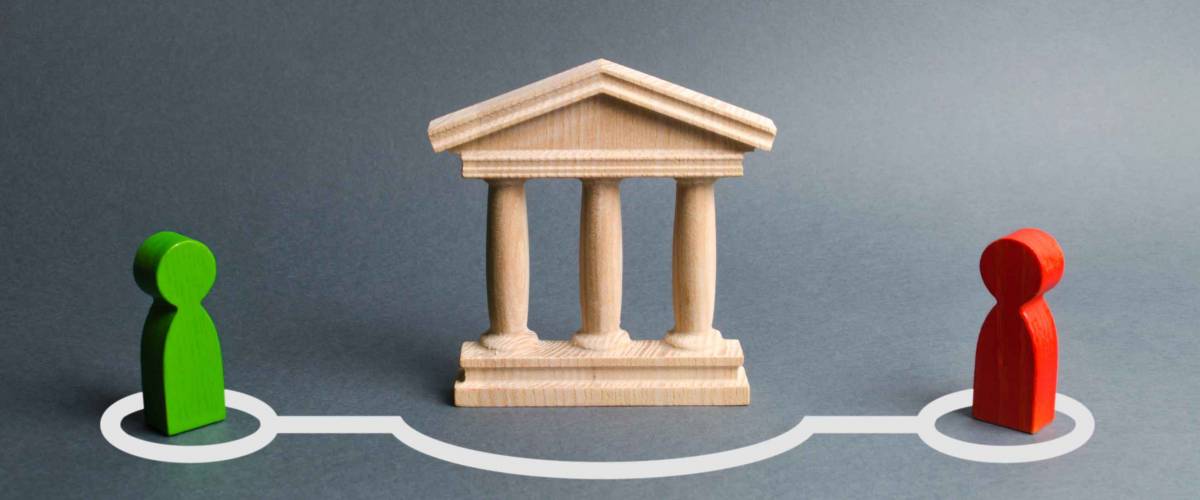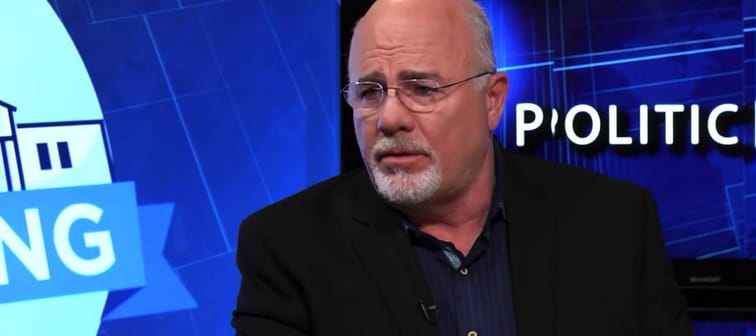1. Don’t try to tackle your biggest debts first

When you’re deep in debt with multiple loans, freeing yourself can seem impossible. That’s why Ramsey suggests the “debt snowball method.”
Rather than start with the loan with the highest interest rate, Ramsey says to pay off the loan with the lowest balance first, making only minimum payments on the rest. The idea is that each small victory inspires you to tackle bigger challenges.
“It’s more about behavior change than numbers. Once your income is freed up, you can finally use it to make progress toward your savings goals,” Ramsey explains on his website.
The snowball method is one of Ramsey's most common pieces of advice but it's also controversial. If your credit score is hurting, it may be better to use an online service that can help you determine which bills to pay off first to get your score back up.
Empower Your Investments with Q Trade
Discover Q Trade's award-winning platform and take control of your financial future. With user-friendly tools, expert insights, and low fees, investing has never been easier.
Start Trading Today2. Don’t try to justify frivolous purchases

If you want to become financially independent, you’ll have to figure out where you can cut corners. That means no more lattes or new jeans.
“But I work hard all day. I deserve it. Oh, call the wahhmbulance — we all work,” Ramsey said on his radio show.
With just a bit of budgeting, most people learn they’re not nearly as strapped as they think they are. Overspending is what’s keeping Americans in debt, Ramsey says, especially the attitude that you deserve what you want.
Each shopping trip helps fritter away your future, especially if you're not using money-saving tools including the Swagbucks free reward service that earns you cash when you shop online.
3. Don’t buy with a credit card what you can buy with cash

Ramsey says you don’t need fancy software to help you save. Once you’ve worked out your monthly budget, withdraw that much cash from the bank and separate it into envelopes labeled gas, groceries, entertainment and whatever else you need.
“Anytime you want to know how much money you have left to spend in your budget category, just take a peek in your envelope,” Ramsey said in a blog post.
It may sound old school, but the envelope system forces you to think about your expenses. It’s so easy to tap a credit card and forget about it, while cash makes you watch the money leave.
Now, if you’ve already got credit card debt, it’s important to get out from under those hefty interest rates. Taking out a lower-interest personal loan can help you consolidate that debt and pay it off faster.
Unexpected vet bills don’t have to break the bank
Life with pets is unpredictable, but there are ways to prepare for the unexpected.
Fetch Insurance offers coverage for treatment of accidents, illnesses, prescriptions drugs, emergency care and more.
Plus, their optional wellness plan covers things like routine vet trips, grooming and training costs, if you want to give your pet the all-star treatment while you protect your bank account.
Get A Quote4. Don’t buy new

Assuming your car has four wheels, that’s good enough for Dave Ramsey. Buying the newest model of anything is a waste.
“If you’re tired of the kitchen countertops or want to upgrade to the latest and greatest cellphone, think again … Don’t steal from your needs to pay for your wants,” he writes on his blog.
Ramsey says no one should buy a new car, unless they have a net worth in excess of $1 million. Cars lose a huge chunk of their value as soon as they’re driven off the lot.
“The average millionaire drives a four-year-old car with 41,000 miles on it, and of course it’s paid for. They haven’t made a car payment in decades, which is why they’re millionaires,” he adds.
When you do buy, be sure to compare auto loans from several lenders so you can get the best rate.
5. Don’t spend when you can invest

When Ramsey appeared on Larry King Live in 2015, the Dow was doing well and unemployment was steadily decreasing. King wanted to know: If the economy’s so great, why are Americans still suffocating in debt?
Ramsey said wage stagnation has played a significant factor, but that’s no excuse to let consumers off the hook.
“Americans have a spending problem,” he told King.
“In order to make money on your mutual fund and your 401(k), you have to put money into your 401(k). If you had been doing that [since the 2008 recession] ... your money would have tripled." The same holds true in Canada with TFSAs and RRSPs.
You don’t reap the benefits of a flourishing economy by consuming even more; it’s investing that brings wealth. Consider using an automated service that builds a portfolio for you and automatically rebalances your investments.
6. Don’t go to a fancy college

You’re at the top of your class, so why wouldn’t you attend the best school?
According to a 2018 university study, three quarters of all jobs that pay more than $35,000 are held by people with some form of higher education — but don’t set yourself up for failure by saddling yourself with debt.
In 2018, the total amount of student debt in Canada was over $28 billion, and graduates are eager to find ways to deal with their unpaid loans.
Ramsey says the important thing is getting a decent education without taking out a loan — not the prestige of an Ivy League school.
“That’s the biggest lie we’ve ever believed: where you went to school has some correlation with your future success. It has almost zero,” he told CNBC last year.
7. Don’t splurge once you graduate

When you leave school and find your first real job, you might feel like you’ve got money to burn. Slow your roll.
“I tell young people who call our radio show that you’re already used to living like a broke college kid, so keep living like one until you start making grown-up money,” Ramsey told CNBC in 2018.
You don’t have to resort to eating instant noodles and drinking instant coffee; it’s more about the mentality of making every penny count.
By limiting your expenses and buying necessities on the cheap, Ramsey said, “you can clean up any debt you might have, build up your emergency fund and start saving for the things you want and need down the road like a better car and a down payment on a house.”
8. Don’t give your kids an allowance

Ramsey says America doesn’t have a debt crisis; it has a parenting crisis. Financial literacy starts at home, and parents are setting their kids up for failure by giving them an “allowance.”
“I just don’t like the word. Allowance kind of sounds like, ‘You’re not good enough, so I have to do something for you.’ It kind of sounds like welfare. Instead, we called it ‘commission.’ You got paid for doing chores. Work? Get paid. Don’t work? Don’t get paid,” he told CNN in 2014.
Make no mistake, Ramsey said, all the work he made his kids do was age-appropriate. “You’re 4 years old, we’re not going to send you off to the salt mines,” he joked.
9. Don’t try to get rich too quickly

While it’s great to come into a sudden windfall, Ramsey says it’s better to build a fortune slowly and sustainably.
“Ninety percent of the [millionaires] I have met did it gradually,” Ramsey said on his radio show in 2017. “I’m not against getting money quickly ... but there are all kinds of problems that go with it when it comes quickly.... How often have we seen the young athlete get money and it destroys their life?”
He said the Book of Proverbs sums it up: “Wealth grown hastily will dwindle.”
His advice isn’t just based on Biblical wisdom; Ramsey is also speaking from experience. He gained and lost a $4 million portfolio flipping houses before age 30.
10. Don’t buy an engagement ring from a jewelry store

You want to dazzle her, but you shouldn’t start your life together with a pile of debt.
On the Bobby Bones radio show in 2019, Ramsey was asked about the popular rule of thumb that helps suitors decide how much to spend on an engagement ring.
“The jewelry stores say three months’ [salary]. I say one month,” he quipped.
“Diamonds are like furniture. They’ve got a huge market, so where you buy it can be very, very important. If you can go to a diamond broker or someone who knows a little bit about diamonds, even a high-end pawn shop, you can get [rings] for a quarter on the dollar. And really good stones.”
Sponsored
Trade Smarter, Today
With CIBC Investor's Edge, kick-start your portfolio with 100 free trades and up to $4,500 cash back.








